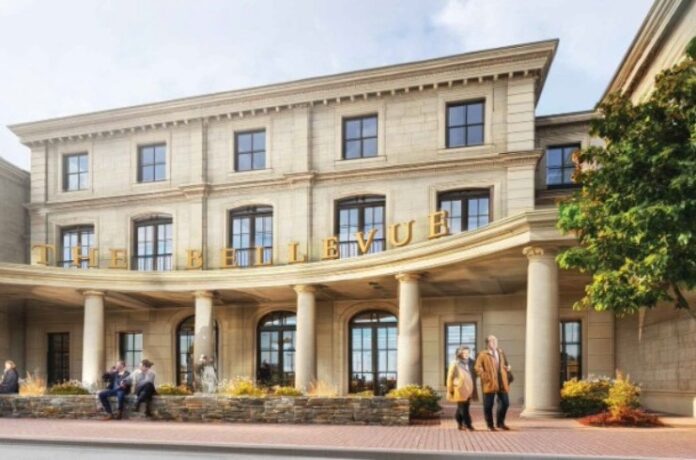
These independent hotels now account for 50% of the French hotel pool. They are mostly small-capacity hotels (26 rooms on average) managed by a family.
They are important players in the hotel market worldwide. And benefit from many advantages over the big hotel chains. However, the competition is there, so what do they have to rely on to be dangerous competitors?
Table of Contents
The 5 main advantages of independent hotels
1- A personalised hotel service
In the hotel world, service is the key word. It is imperative for a hotel to offer quality service—a service perfectly adapted to its customers, a service that is both personal and personalised.
Avoiding standardised service and providing a memorable experience is one of the advantages of independent hotels. This customisation is not possible for hotel chains. Because they see their clients as a whole and not as a collection of individuals.
Personal and personalised service means anticipating the client’s needs before they become them. It means meeting the expectations and demands of the customer and knowing how to go beyond.
2- Unique and authentic hotels
A simple visit to the hotel of a national or international chain shows a total lack of originality.

Most chain hotels are built for economic reasons. Their locations are chosen because of their attractiveness and potential profit.
In contrast to independent hotels, which have a true authenticity that is often based on their history. These independent hotels often arise from the personal wishes of their owners.
Their location is unique, unlike chains. It bears witness to the local side sought after by many travellers. A family history and a love for the place are often the driving forces behind these establishments. These engines are the pillars of authenticity and uniqueness.
3- Spaces for creativity
The large international chains and franchises are often very beautiful hotels with special care and style. However, their creativity is limited by widespread standardisation and internal development policies.
Here again, independent hotels have the essential asset of creativity. Their creativity is completely free in terms of gastronomy, decoration, furniture, events and marketing techniques. This creativity is an asset put to the service of the establishment’s identity and reputation. Thus, they respond to the search for a singular experience increasingly demanded by customers in this rapidly globalising world.
The idea here is to take a trendier, bolder, truer approach. To create a “cool” hotel in connection with its visitors, whose marked concept is found in all the elements. With a single goal: notoriety, to get the hotel talked about, and to encourage social media influencers to generate buzz.
4- Their agility
Board of Directors, treasury, strategic management, operational management, human resources… All these hierarchical and decision-making layers slow down and reduce the direct actions on the ground of the hotel chains.
The hotel business is an environment that requires adaptation and agility in managing situations. Independent hotels can make tactical and strategic decisions very quickly and implement them quickly.
In this respect, they, therefore, have a considerable advantage over their competitors from franchises or chains.
5- All the resources, care and energy of a hotel
As mentioned earlier, chains and franchises are buried under the hierarchical and decision-making layers.
They are shared among many institutions, and they are obliged to prioritise and, therefore, provide different resources, attention, and energy to different institutions.
Conversely, independent hotels have a complete dedication to the success of a single establishment, their own!
This allows them to allocate part of their resources for a particular event and to manage off-peak periods more easily with appropriate offers.
To conclude, the 5 major assets of independent hotels
These 5 main assets show us that being an independent hotel is not a small face to the big one. Is also not being alone in the face of many. But it is to be unique, authentic and much freer in many aspects. Its assets are strengths and must be exploited proactively as part of a long-term business strategy.
But the competition is still very real: So how do you stay in the race when you’re an independent hotel?
Although independent hotels have many advantages, they are constantly competing with chains. They compete on price, standing, geographical coverage, and financial means.
Stay modern
An independent hotel that is satisfied with its achievements and refuses to modernise is heading for ruin.
Updating its decoration and equipment is essential. To meet the changing demands of travellers, but also of consumption patterns and standards in force.
Re-equipping a hotel is expensive, and although it is often easier money for chains to get out, independent hotels have to make this effort. Indeed, channels often have a budget allocated for this. Freelancers don’t.
For the self-employed, this modernisation is essential to remain competitive. Re-equipment must be thought of in terms of duration: classic decors that do not go out of fashion, solid furniture that will last without ageing, etc. As long as the major equipment is solid and timeless, periodic refreshments (paints, carpets, lighting) are all that is needed to keep up with travellers’ expectations and tastes.
Work on your web visibility
The advent of the Internet benefited the big chains most at first. It boosted their visibility and notoriety. But the social networks, indispensable tools for the visibility of one’s establishment, mainly benefit the self-employed.
Indeed, many independent hotels with a strong concept have been able to stand out thanks to social networks, particularly Instagram. This free and viral means of communication is essential for independent hotels that do not have communication resources equivalent to chains.
But still too many small hotels do not take into account the importance of web visibility. Not having an internet site, with integrated reservation means it closes the door to many travellers.
Today it is not useful to spend large sums of money to create a website. The important thing is to have an evolving site that is well-referenced. Including a reservation system on your site saves you commissions from reservation platforms such as booking.com.
Conclusion
Independent hotels have many advantages and are not destined to disappear despite the growing importance of chains. These assets must go hand in hand with good Web visibility and constant modernisation of the offer and service.








